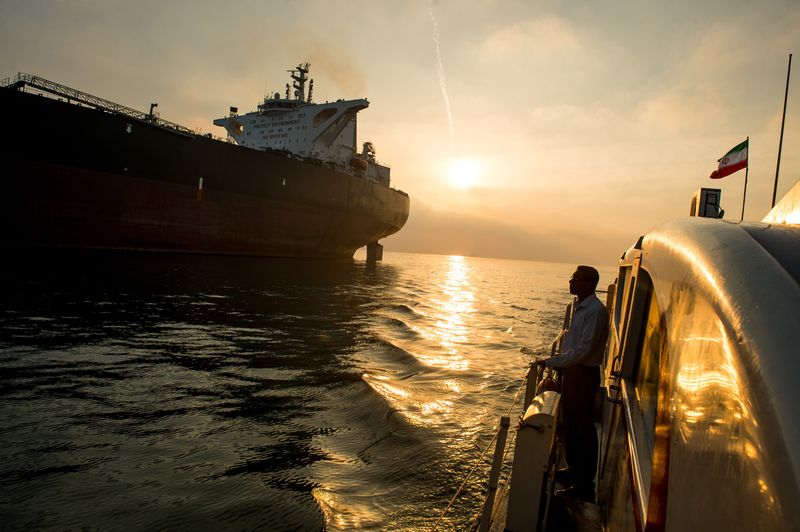Iranian officials have accused the United States and Saudi Arabia of pressuring members of the Organization of Petroleum Exporting Countries (OPEC) and reducing the global price of crude oil.
OPEC oil ministers plan to meet in Vienna from June 22-23 to decide the future of an oil production cut agreement that was brokered with Russia, Kazakhstan, Azerbaijan and other non-OPEC oil producing countries in 2016. In the lead-up to the scheduled meeting, Russia and Saudi Arabia have agreed to ask OPEC to increase output by 1.5 million barrels per day in the third quarter of 2018, to counter fears that American sanctions on Iran would disrupt supplies.
"The meeting is one of the most important OPEC meetings in decades, because [U.S. President] Donald Trump, after pulling out of the JCPOA [Joint Comprehensive Plan of Action], has written a secret letter to some OPEC members, including Saudi Arabia, trying to alleviate part of the social and economic pressure that the American people are shouldering today by jacking up OPEC oil output," the head of the Iranian parliament's energy committee, Fereidoun Hasanvand said, according to the Iranian financial website Donya-e-Eqtesad.
Hasanvand was referring to the nuclear deal signed between Iran and six world powers in July 2015, and from which Trump pulled the U.S. in May of this year. Trump announced that the U.S. will re-impose the sanctions that were lifted under the JCPOA, including a universal ban on Iran buying or acquiring U.S. dollars, as well as restrictions on purchases of crude oil and international investments in Iran’s oil sector projects.
Hasanvand went on to say that there are currently no signs of a shortage of oil on the market, saying the U.S. is creating a false and unreal demand in the market in order to put pressure on some OPEC member states.
In a tweet on June 13, Trump wrote that “Oil prices are too high, OPEC is at it again. Not good!”, essentially placing blame on the organization for recent increases in the price of crude.
On April 20 Trump had tweeted about oil prices and referencing the 14-nation global oil cartel: “Looks like OPEC is at it again. With record amounts of Oil all over the place, including the fully loaded ships at sea, Oil prices are artificially Very High! No good and will not be accepted!"
Crude oil was priced at around $45 per barrel when Trump was elected in November 2016. As of June 18, it hovered around $64 per barrel. The price reached an all-time high during Trump’s tenure last month, surpassing $71 per barrel.
In a response to the recent joint statement of Saudi Arabia and Russia to increase oil output, Iran’s OPEC governor, Hossein Kazempour Ardebili, said, “Saudi Arabia is trying to win points with Russia in order to align them with their goals which wouldn’t help them,” according to Iran’s Tasnim news agency.
Ardebili also referred to Trump’s remarks, saying, “The USA is also putting a lot of pressure on Saudi Arabia to reduce oil prices,” and added that, “the United States has also introduced an act called NOPEC in order to blackmail OPEC which the members will stand against it.”
The No Oil Producing and Exporting Cartels Act (NOPEC) was a U.S. Congressional bill introduced in 2007 but never enacted, meant to put pressure on the oil market to drive down prices given the U.S.’ enormous oil purchasing power. NOPEC was designed to remove the state immunity shield and to allow the OPEC, and its national oil companies, to be sued under U.S. antitrust laws for anti-competitive attempts to limit the world's supply of petroleum and the consequent impact on oil prices.
Oil prices have risen around 60 percent over the past year after OPEC and some non-OPEC producers, including Russia, decided to slash output by 1.8 million barrels a day to push prices up.
In early 2016, oil prices were below $30 a barrel. But after stabilizing measures the prices reached about $50 a barrel in 2017.
According to the International Energy Agency (IEA) Iranian oil production could drop by about 900,000 barrels a day, or about 23 percent, in 2019, due to sanctions re-imposed by the United States. In its first detailed forecast for 2019, the IEA says that Venezuelan and Iranian oil production is expected fall by a combined 1.5 million barrels per day by the end of next year; however, extra oil output from OPEC and non-OPEC countries such as Saudi Arabia and Russia could compensate for the lost supply.







 Iran's senior military leaders described the drone and missile attack on Israel on April 14 night as “successful".
Iran's senior military leaders described the drone and missile attack on Israel on April 14 night as “successful".
 Azerbaijan officially unveiled the logo for the upcoming 29th session of the Conference of the Parties to the United Nations Framework Convention o...
Azerbaijan officially unveiled the logo for the upcoming 29th session of the Conference of the Parties to the United Nations Framework Convention o...
 Iranian President Ebrahim Raisi warned Israel that it would face a "real and extensive" response if it makes any "mistake" following Tehran’s missi...
Iranian President Ebrahim Raisi warned Israel that it would face a "real and extensive" response if it makes any "mistake" following Tehran’s missi...
 The Kazakh authorities have increased their arbitration claims against international oil companies involved in the development of the Kashagan oil ...
The Kazakh authorities have increased their arbitration claims against international oil companies involved in the development of the Kashagan oil ...



